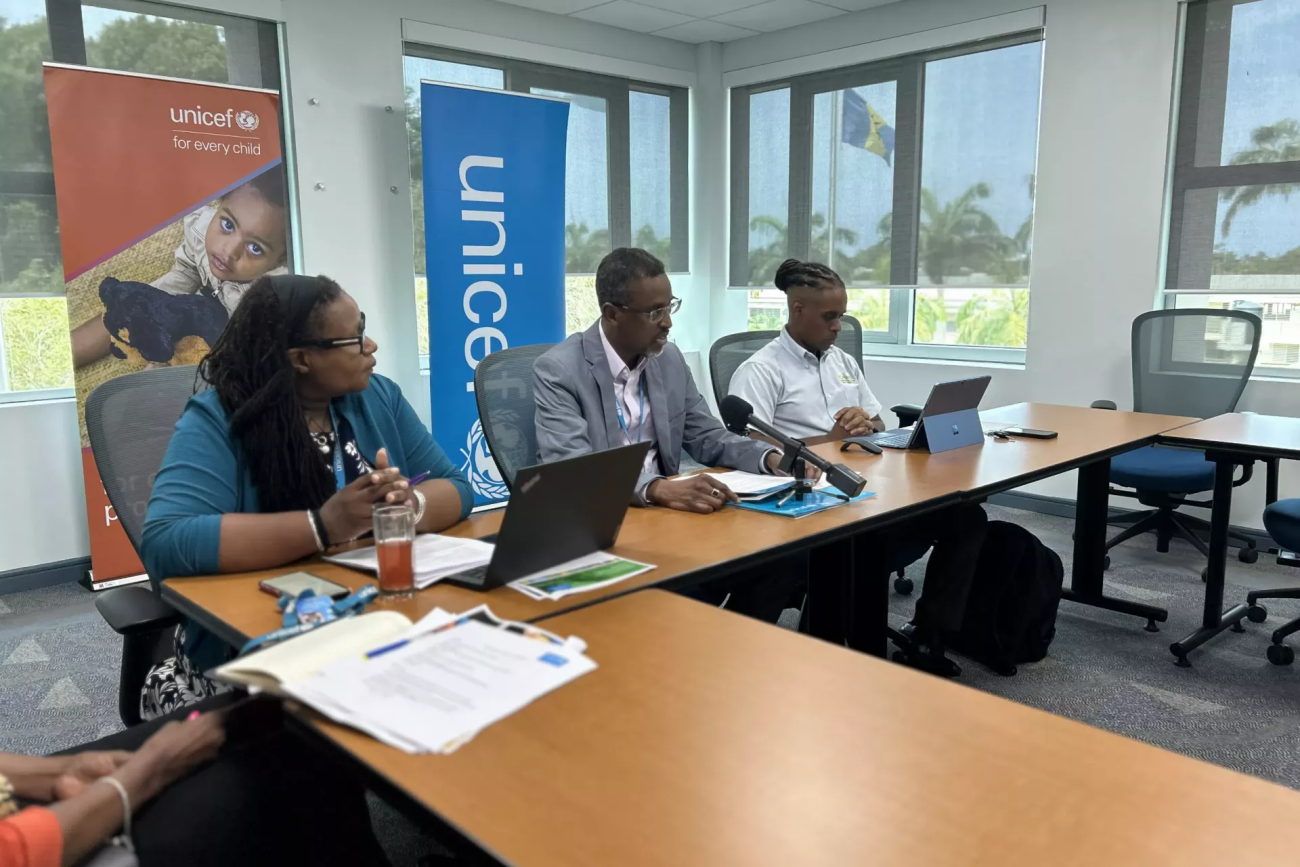BRIDGETOWN – 23 April 2025 – Adults in the Eastern Caribbean see children who come into conflict with the law as young people in need of care, support, and protection, a new UNICEF report has found.
This is one of the key findings from a wide-ranging study commissioned by UNICEF and conducted by the Caribbean Development Research Services (CADRES), exploring public attitudes towards corporal punishment, child sexual abuse, and juvenile offending across eight Eastern Caribbean countries: Antigua and Barbuda, Barbados, the British Virgin Islands, Dominica, Grenada, Saint Kitts and Nevis, Saint Lucia, and Saint Vincent and the Grenadines.
The study revealed that 63 per cent of respondents believe that greater efforts must be made to support children and young people who commit criminal offences. Yet, when asked about accountability, 38 per cent saw the children themselves as responsible for their actions, while 31 per cent viewed society as having failed them.
On the matter of parental responsibility, 15 per cent of respondents said parents were fully responsible for their children’s offending behaviour, and 50 per cent said they were partially responsible. Encouragingly, there was strong support for rehabilitative approaches – such as community service supervised by government agencies, parenting support programmes, vocational training, career counselling, and community sports initiatives.
Speaking at the launch of the report at UN House Barbados, UNICEF Representative for the Eastern Caribbean Area, AbdulKadir Musse, said the findings would help guide the development of evidence-informed responses to child protection.
“These findings help us to… meet people where they are and guide policymakers in how to build – or course correct – policies, strategies and programmes aimed at reducing violence against children in its many forms,” said Musse.
However, the UN children’s agency head, also flagged deeply troubling findings, particularly in relation to child sexual abuse. A quarter of all respondents reported knowing a child who had been sexually abused.
“Although many respondents showed a good grasp of what constitutes such abuse, in some countries only one-third identify sending a child pornography as sexual abuse. We still have much work to do,” he said, also highlighting emerging risks like grooming, stalking and cyberbullying.
Equally concerning is the continuing support for corporal punishment. The report found that 70 per cent of respondents still accept its use in homes and schools, with 58 per cent stating it is a “parent’s right”. This marks a regression in attitudes over the past decade.
“At UNICEF, we are not in the business of telling parents and educators that they are wrong said Musse. “We are in the business of working with partners to suggest more constructive avenues for discipline such as positive behaviour management. Several countries have seen positive shifts away from corporal punishment. Barbados is one – and, as UNICEF, we will keep working with partners to explore better ways to guide our children.”
The Organisation of Eastern Caribbean States (OECS) Commission also voiced its support for the findings, pledging to uphold social justice, human rights, and child protection as fundamental pillars of regional development.
“No child should experience violence in any form – not in homes, not in school, not online, and certainly not at the hands of those entrusted with their care,” said Ms Lisa Sargusingh-Terrance, Senior Technical Specialist from the OECS Commission.
“This is a moment of reckoning and of renewed commitment, therefore it is very important to note that all six independents in OECS member states are signatories to the UN Convention on the Rights of the Child. This means we have pledged unequivocally to protect our children from violence, abuse and neglect. Today’s launch allows us to reflect on our progress, double down on our commitment to action for deeper reform,” the OECS Specialist added.
.................................................
This story was first published by UNICEF Eastern Caribbean.




